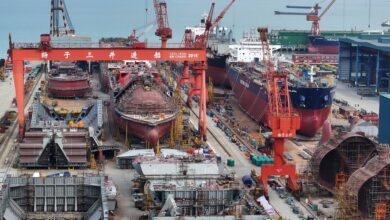
Amid Iran’s Looming Succession Crisis, Khamenei’s Son Mojtaba Poised to Ascend as Supreme Leader.
As the health of Iran’s aging Supreme Leader, Ayatollah Ali Khamenei, continues to deteriorate, a secretive power struggle has erupted behind the scenes in the Shia-majority nation, potentially setting the stage for a major political transition.
According to reports, Khamenei’s second son, Mojtaba Khamenei, has emerged as the frontrunner to succeed his ailing father as the supreme leader of Iran, a development that could have far-reaching implications for the Islamic Republic’s trajectory, particularly in the face of ongoing tensions with Israel.
The reports, which originated from the Persian-language media outlet Iran International, claim that a surprise meeting of the 60-member Assembly of Experts was convened on Khamenei’s orders on September 26, where the members were tasked with immediately deciding on the succession plan.
The decision to anoint the younger Khamenei as the next supreme leader comes at a critical juncture, as Iran grapples with a deepening confrontation with Israel and faces the prospect of a volatile leadership transition.
The 85-year-old Ayatollah Khamenei, who has ruled Iran with an iron fist since 1989, has been struggling with deteriorating health, prompting speculation about the future of the Islamic Republic’s political landscape.
The potential elevation of Mojtaba Khamenei, a less experienced and more hardline figure compared to his father, has raised concerns among Iran watchers about the potential for a more aggressive and unpredictable foreign policy, particularly towards Israel and the West.
Mojtaba, who has been described as a rising power broker within the Iranian political establishment, has a history of involvement in efforts to suppress anti-government protests, most notably during the 2009 Green Movement demonstrations.
His reported ties to former President Mahmoud Ahmadinejad and alleged role in securing the latter’s controversial 2009 election victory have also drawn scrutiny.
The outcome of this secretive power struggle could significantly shape the future course of the Islamic Republic and its relations with the international community.



